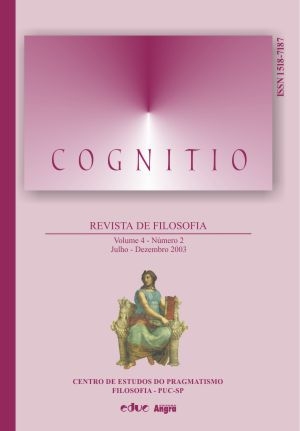Pragmatism and the Loss of Innocence
Keywords:
(neo-)pragmatism, Peirce, Dennett, Darwinism, evolutionism, naturalismAbstract
What is it about pragmatism that has from its inception been found disturbing? I am reminded of Daniel Dennett’s remark in his 2000 American Philosophical Association Presidential Address that “many people dislike Darwinism in their guts.” There is something about pragmatism that has always been found deeply troubling and I believe it is related to what troubles people about Darwinism. Inspired by Dennett’s treatment of the idea and impact of evolutionary theory in his Presidential Address and in his book, Darwin’s Dangerous Idea, I will look at pragmatism in that light and will suggest that it may be even more threatening than Darwinism to traditional western values and the glorification of individualism. I will suggest that pragmatism is a naturalistic philosophy that presupposes a radical evolutionism and that, try as they might to subsititute a belief in an exuberant meliorism for religious faith, pragmatists must eventually face the fact that everything is fleeting and that ignorance will prevail. In fact, taking the long view of things, there really is no future. But, surprisingly perhaps, this is no cause for a pessimistic outlook. Futility, in the long run, is no excuse for despair today. Interlaced with these somewhat didactic themes, I will include some comparison of Dennett’s parsimonious philosophy with the views of the original pragmatists, especially with Peirce’s semiotic pragmatism, and I will briefly consider whether the naturalism running from Quine to Dennett is a branch of neo-pragmatism that has been largely unrecognized.Metrics
Metrics Loading ...
Downloads
Published
2013-01-09
How to Cite
Houser, N. (2013). Pragmatism and the Loss of Innocence. Cognitio: Revista De Filosofia, 4(2), 49–62. Retrieved from https://revistas.pucsp.br/index.php/cognitiofilosofia/article/view/13230
Issue
Section
Cognitio Papers









